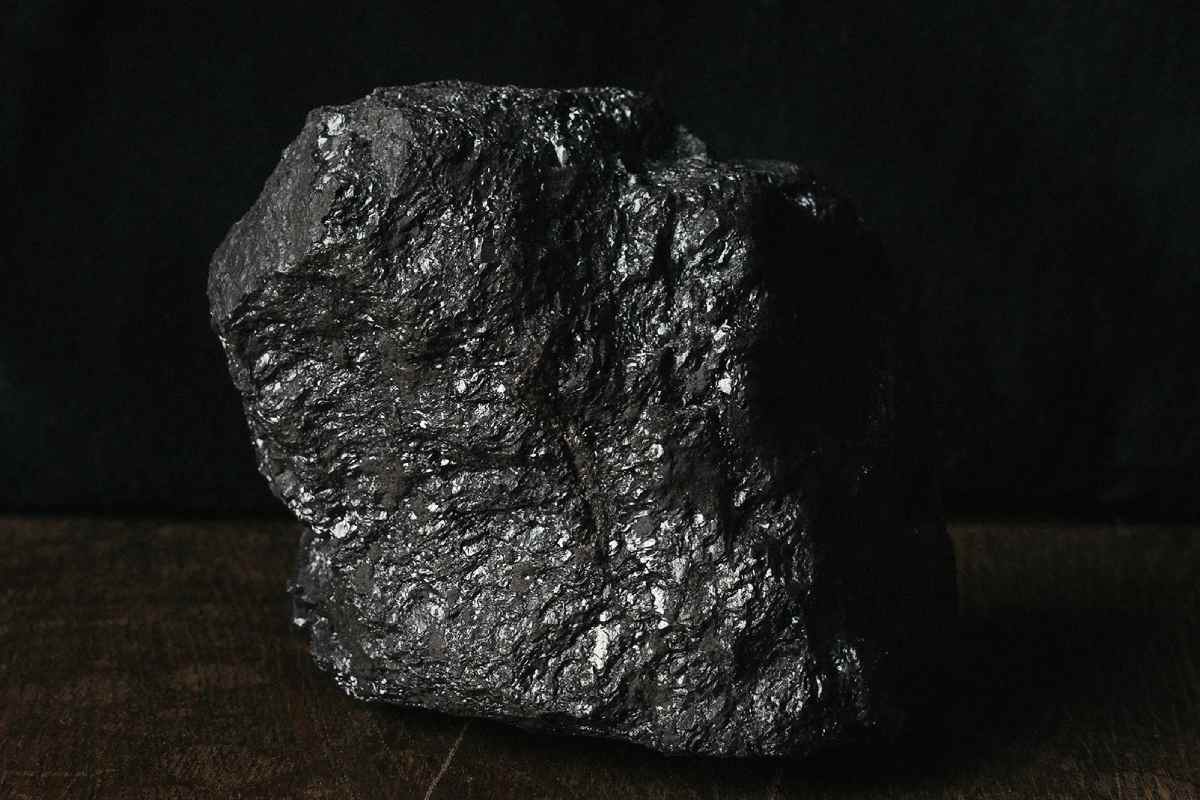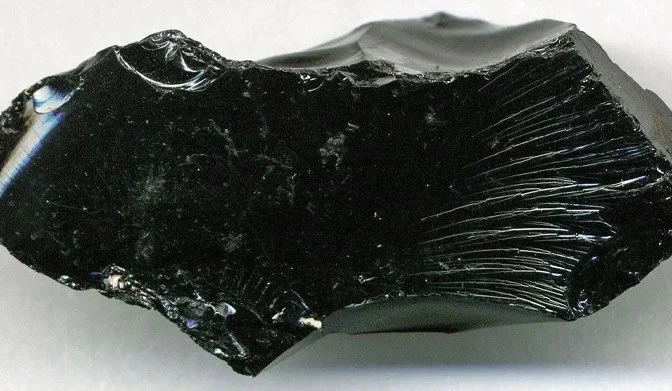Natural asphalt, also known as asphaltum, bitumen, or tar, is a naturally occurring substance that forms from the remains of ancient organic materials. It is typically found in deposits near oil and gas reservoirs, often in areas where petroleum has seeped to the surface. Natural asphalt is composed of complex hydrocarbons and other organic compounds.
Unlike the asphalt used in road construction, which is typically derived from petroleum refining, natural asphalt forms through geological processes over thousands or millions of years. It can vary in color, consistency, and chemical composition depending on its source and the conditions under which it formed.
Natural asphalt has been used for various purposes throughout history, including as a waterproofing agent, adhesive, and in the construction of roads and buildings. It has also been used for medicinal and ceremonial purposes by indigenous peoples in various parts of the world.
Read more: bitumen
What is natural asphalt made of?
Natural asphalt is primarily composed of complex hydrocarbons, which are organic compounds made up of hydrogen and carbon atoms. These hydrocarbons are formed from the remains of ancient organic materials such as plants, animals, and microorganisms, which undergo chemical transformations over time due to geological processes.
In addition to hydrocarbons, natural asphalt may contain various other organic compounds, such as sulfur, nitrogen, and oxygen-containing molecules. The exact composition of natural asphalt can vary depending on factors such as its source, age, and geological conditions.
Some natural asphalts may also contain mineral impurities, such as silica, clay, and carbonate minerals, which can affect their properties and suitability for different applications.
Read more: natural bitumen
What is the nature of asphalt?
The nature of asphalt can be described in several ways:
- Physical Nature: Asphalt is typically a black or dark brown, sticky, viscous liquid or semi-solid substance. At room temperature, it is usually solid or semi-solid, but it can become more fluid when heated. Asphalt has a high viscosity, meaning it flows slowly, and it is often described as “tar-like” or “bituminous.”
- Chemical Nature: Asphalt is composed primarily of complex hydrocarbon molecules, which are organic compounds made up of hydrogen and carbon atoms. These molecules vary in size and structure, and they can contain other elements such as sulfur, nitrogen, and oxygen. The specific chemical composition of asphalt can vary depending on its source and processing.
- Mechanical Nature: Asphalt exhibits unique mechanical properties that make it suitable for various applications, particularly in construction. It is durable, flexible, and water-resistant, making it an ideal material for paving roads, sealing roofs, and waterproofing structures. Asphalt can withstand heavy loads and traffic, and it can also be mixed with aggregates to create asphalt concrete for road surfaces.
- Environmental Nature: Asphalt is a naturally occurring substance that is found in deposits around the world. It is a renewable resource, as it forms through the natural degradation of organic materials over time. However, the extraction and processing of asphalt can have environmental impacts, such as habitat disruption and air and water pollution.
Overall, asphalt is a versatile material with diverse properties that make it valuable for a wide range of applications in construction, infrastructure, and industry.
Read more: Gilsonite asphalt
What are the natural resources of asphalt?
The primary natural resource of asphalt is petroleum. Asphalt is formed through the natural degradation of organic materials, including plants, animals, and microorganisms, which are buried and subjected to heat and pressure over millions of years. This process, known as petroleum formation, results in the accumulation of hydrocarbons, which are the main components of asphalt.
Asphalt is typically found in deposits near oil and gas reservoirs, often in areas where petroleum has seeped to the surface. These deposits can vary in size and composition, and they may contain different types of asphalt depending on factors such as the source of the organic materials and the geological conditions.
While petroleum is the primary natural resource associated with asphalt, other organic materials can also contribute to its formation. For example, some natural asphalts may contain high concentrations of bituminous materials derived from plant matter or other organic sources.
Overall, asphalt is a natural resource that is closely linked to the formation and extraction of petroleum, making it an important component of the global energy and materials industries.
Read more: Gilsonite powder
What are the three types of asphalt?
Asphalt can be classified into three main types based on its consistency and use:
- Liquid Asphalt (Asphalt Cement): This type of asphalt is a thick, black liquid that is the binding agent used in asphalt pavement construction. It is derived from the refining of crude oil and is commonly referred to as asphalt cement. Liquid asphalt is heated and mixed with aggregates to create asphalt concrete, which is used for road surfaces, parking lots, and other paved areas.
- Cutback Asphalt: Cutback asphalt is a mixture of liquid asphalt (asphalt cement) and a solvent, such as gasoline, kerosene, or diesel fuel. The addition of solvent reduces the viscosity of the asphalt, making it easier to handle and apply. Cutback asphalt is used primarily in cold weather applications or when a rapid curing time is required. After application, the solvent evaporates, leaving behind the asphalt binder.
- Emulsified Asphalt: Emulsified asphalt is a mixture of liquid asphalt (asphalt cement) and water, along with an emulsifying agent. The emulsifying agent allows the asphalt to mix with water, creating a stable suspension or emulsion. Emulsified asphalt is typically used for tack coats, surface treatments, and patching materials. It can be applied at lower temperatures than cutback asphalt and does not require heating prior to use.
These three types of asphalt have different properties and are used for various purposes in road construction, pavement maintenance, and other applications.
Read more: bitumen vs asphalt
natural asphalt sources
Natural asphalt, also known as asphaltum, bitumen, or tar, is primarily found in deposits near oil and gas reservoirs. These deposits can occur in various geological settings, including:
- Oil Seeps: Natural asphalt often occurs at the surface where petroleum has seeped from underground reservoirs. Over time, the lighter hydrocarbons in the petroleum evaporate, leaving behind the heavier components, including asphalt. These surface deposits of asphalt can be found in regions with active or historic oil exploration and production.
- Oil Sands: Some natural asphalt deposits are associated with oil sands or tar sands, which contain a mixture of bitumen (a highly viscous form of petroleum), sand, clay, and water. Bitumen extracted from oil sands can be processed to separate the asphalt from the other components, yielding a crude form of natural asphalt.
- Oil Shales: In certain geological formations, organic-rich shales can undergo thermal maturation processes, generating hydrocarbons including bitumen. Although oil shales primarily contain kerogen (the precursor to oil and gas), some deposits may contain significant amounts of bitumen or natural asphalt.
- Subsurface Reservoirs: In addition to surface deposits, natural asphalt can also be found in underground reservoirs, often associated with petroleum-bearing formations. These subsurface deposits may be accessed through drilling and extraction methods similar to those used in conventional oil and gas production.
Natural asphalt deposits occur worldwide, with significant reserves found in regions such as the La Brea Tar Pits in Los Angeles, California, the Pitch Lake in Trinidad and Tobago, and various locations in the Middle East, Canada, Venezuela, and other parts of the world.
Read more: Gilsonite Bitumen
Purchase and supply of natural asphalt with Elika Gilsonite company
Looking for high-quality natural asphalt at competitive prices? Look no further than Elika Gilsonite! As the largest exporter of Gilsonite in Iran, Elika Gilsonite offers premium-grade natural asphalt sourced from the finest deposits.
Elika Gilsonite takes pride in delivering top-notch products that meet the highest standards of quality and performance. Our natural asphalt, also known as Gilsonite or uintaite, is a versatile and reliable material with a wide range of applications, including asphalt modification, foundry casting, drilling fluid additives, and more.
With our extensive experience and expertise in the industry, Elika Gilsonite ensures that our customers receive superior products that consistently exceed expectations. Whether you’re in need of natural asphalt for road construction, industrial applications, or other projects, we’ve got you covered.
Plus, with our competitive pricing and commitment to customer satisfaction, you can trust Elika Gilsonite to provide you with the best value for your money. Don’t compromise on quality – choose Elika Gilsonite for all your natural asphalt needs.
Contact us today to learn more about our products and how you can purchase natural asphalt from Elika Gilsonite at affordable prices. Experience the difference with the leading exporter of Gilsonite in Iran!
Source: native asphalt
What is Natural Asphalt?
Natural asphalt, also known as asphaltum, bitumen, or tar, is a naturally occurring substance that forms from the remains of ancient organic materials. It is typically found in deposits near oil and gas reservoirs, often in areas where petroleum has seeped to the surface. Natural asphalt is composed of complex hydrocarbons and other organic compounds.
Unlike the asphalt used in road construction, which is typically derived from petroleum refining, natural asphalt forms through geological processes over thousands or millions of years. It can vary in color, consistency, and chemical composition depending on its source and the conditions under which it formed.
Natural asphalt has been used for various purposes throughout history, including as a waterproofing agent, adhesive, and in the construction of roads and buildings. It has also been used for medicinal and ceremonial purposes by indigenous peoples in various parts of the world.
Read more: bitumen
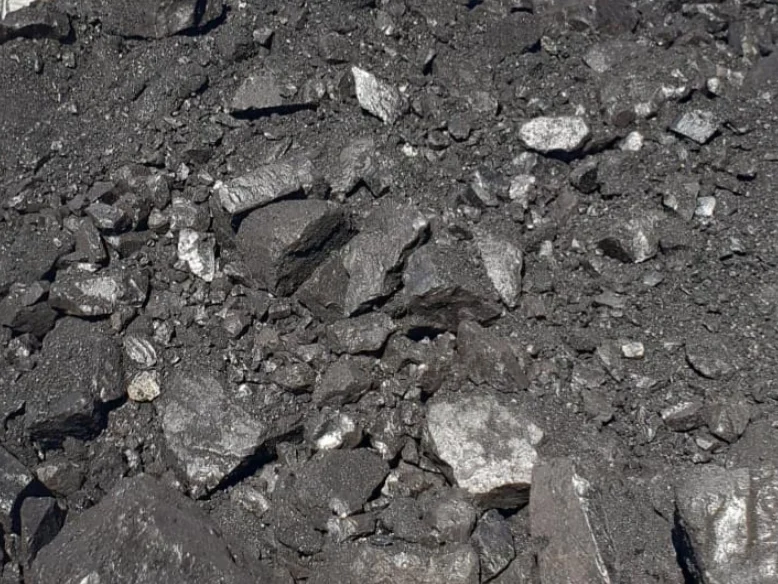
What is natural asphalt made of?
Natural asphalt is primarily composed of complex hydrocarbons, which are organic compounds made up of hydrogen and carbon atoms. These hydrocarbons are formed from the remains of ancient organic materials such as plants, animals, and microorganisms, which undergo chemical transformations over time due to geological processes.
In addition to hydrocarbons, natural asphalt may contain various other organic compounds, such as sulfur, nitrogen, and oxygen-containing molecules. The exact composition of natural asphalt can vary depending on factors such as its source, age, and geological conditions.
Some natural asphalts may also contain mineral impurities, such as silica, clay, and carbonate minerals, which can affect their properties and suitability for different applications.
Read more: natural bitumen
What is the nature of asphalt?
The nature of asphalt can be described in several ways:
- Physical Nature: Asphalt is typically a black or dark brown, sticky, viscous liquid or semi-solid substance. At room temperature, it is usually solid or semi-solid, but it can become more fluid when heated. Asphalt has a high viscosity, meaning it flows slowly, and it is often described as “tar-like” or “bituminous.”
- Chemical Nature: Asphalt is composed primarily of complex hydrocarbon molecules, which are organic compounds made up of hydrogen and carbon atoms. These molecules vary in size and structure, and they can contain other elements such as sulfur, nitrogen, and oxygen. The specific chemical composition of asphalt can vary depending on its source and processing.
- Mechanical Nature: Asphalt exhibits unique mechanical properties that make it suitable for various applications, particularly in construction. It is durable, flexible, and water-resistant, making it an ideal material for paving roads, sealing roofs, and waterproofing structures. Asphalt can withstand heavy loads and traffic, and it can also be mixed with aggregates to create asphalt concrete for road surfaces.
- Environmental Nature: Asphalt is a naturally occurring substance that is found in deposits around the world. It is a renewable resource, as it forms through the natural degradation of organic materials over time. However, the extraction and processing of asphalt can have environmental impacts, such as habitat disruption and air and water pollution.
Overall, asphalt is a versatile material with diverse properties that make it valuable for a wide range of applications in construction, infrastructure, and industry.
Read more: Gilsonite asphalt
What are the natural resources of asphalt?
The primary natural resource of asphalt is petroleum. Asphalt is formed through the natural degradation of organic materials, including plants, animals, and microorganisms, which are buried and subjected to heat and pressure over millions of years. This process, known as petroleum formation, results in the accumulation of hydrocarbons, which are the main components of asphalt.
Asphalt is typically found in deposits near oil and gas reservoirs, often in areas where petroleum has seeped to the surface. These deposits can vary in size and composition, and they may contain different types of asphalt depending on factors such as the source of the organic materials and the geological conditions.
While petroleum is the primary natural resource associated with asphalt, other organic materials can also contribute to its formation. For example, some natural asphalts may contain high concentrations of bituminous materials derived from plant matter or other organic sources.
Overall, asphalt is a natural resource that is closely linked to the formation and extraction of petroleum, making it an important component of the global energy and materials industries.
Read more: Gilsonite powder
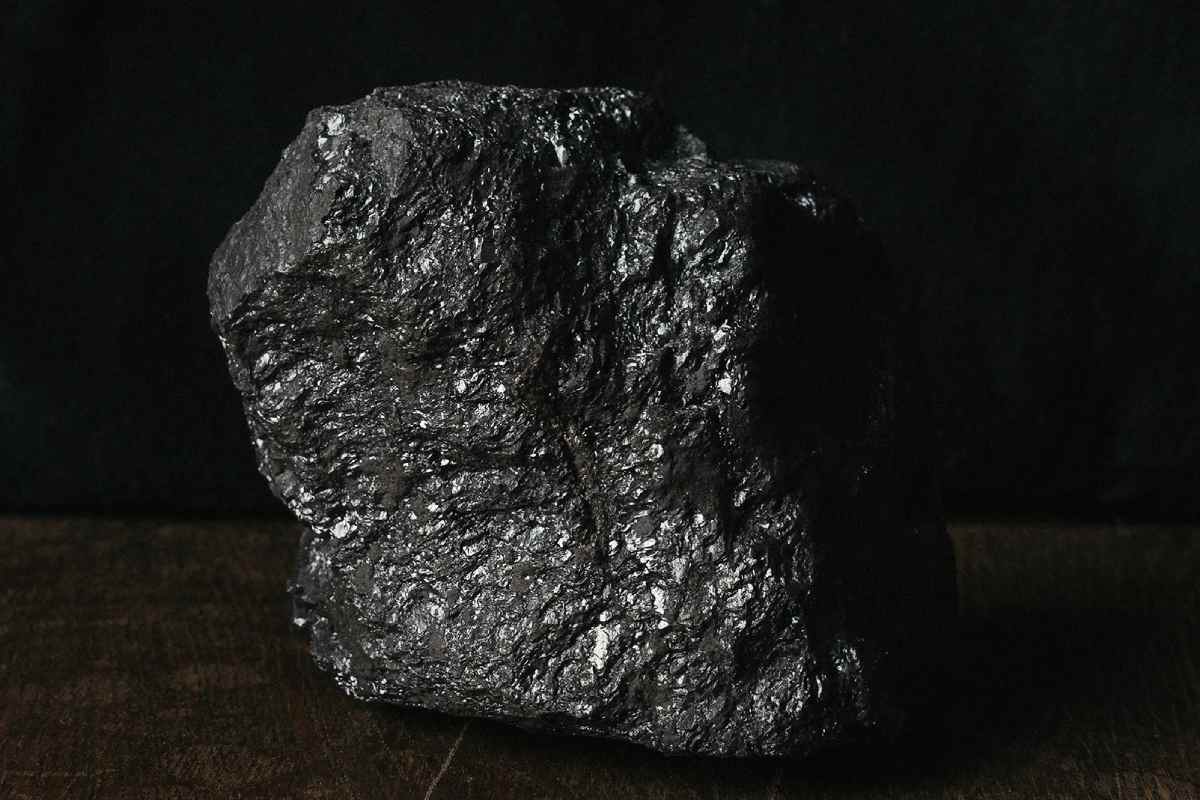
What are the three types of asphalt?
Asphalt can be classified into three main types based on its consistency and use:
- Liquid Asphalt (Asphalt Cement): This type of asphalt is a thick, black liquid that is the binding agent used in asphalt pavement construction. It is derived from the refining of crude oil and is commonly referred to as asphalt cement. Liquid asphalt is heated and mixed with aggregates to create asphalt concrete, which is used for road surfaces, parking lots, and other paved areas.
- Cutback Asphalt: Cutback asphalt is a mixture of liquid asphalt (asphalt cement) and a solvent, such as gasoline, kerosene, or diesel fuel. The addition of solvent reduces the viscosity of the asphalt, making it easier to handle and apply. Cutback asphalt is used primarily in cold weather applications or when a rapid curing time is required. After application, the solvent evaporates, leaving behind the asphalt binder.
- Emulsified Asphalt: Emulsified asphalt is a mixture of liquid asphalt (asphalt cement) and water, along with an emulsifying agent. The emulsifying agent allows the asphalt to mix with water, creating a stable suspension or emulsion. Emulsified asphalt is typically used for tack coats, surface treatments, and patching materials. It can be applied at lower temperatures than cutback asphalt and does not require heating prior to use.
These three types of asphalt have different properties and are used for various purposes in road construction, pavement maintenance, and other applications.
Read more: bitumen vs asphalt
natural asphalt sources
Natural asphalt, also known as asphaltum, bitumen, or tar, is primarily found in deposits near oil and gas reservoirs. These deposits can occur in various geological settings, including:
- Oil Seeps: Natural asphalt often occurs at the surface where petroleum has seeped from underground reservoirs. Over time, the lighter hydrocarbons in the petroleum evaporate, leaving behind the heavier components, including asphalt. These surface deposits of asphalt can be found in regions with active or historic oil exploration and production.
- Oil Sands: Some natural asphalt deposits are associated with oil sands or tar sands, which contain a mixture of bitumen (a highly viscous form of petroleum), sand, clay, and water. Bitumen extracted from oil sands can be processed to separate the asphalt from the other components, yielding a crude form of natural asphalt.
- Oil Shales: In certain geological formations, organic-rich shales can undergo thermal maturation processes, generating hydrocarbons including bitumen. Although oil shales primarily contain kerogen (the precursor to oil and gas), some deposits may contain significant amounts of bitumen or natural asphalt.
- Subsurface Reservoirs: In addition to surface deposits, natural asphalt can also be found in underground reservoirs, often associated with petroleum-bearing formations. These subsurface deposits may be accessed through drilling and extraction methods similar to those used in conventional oil and gas production.
Natural asphalt deposits occur worldwide, with significant reserves found in regions such as the La Brea Tar Pits in Los Angeles, California, the Pitch Lake in Trinidad and Tobago, and various locations in the Middle East, Canada, Venezuela, and other parts of the world.
Read more: Gilsonite Bitumen
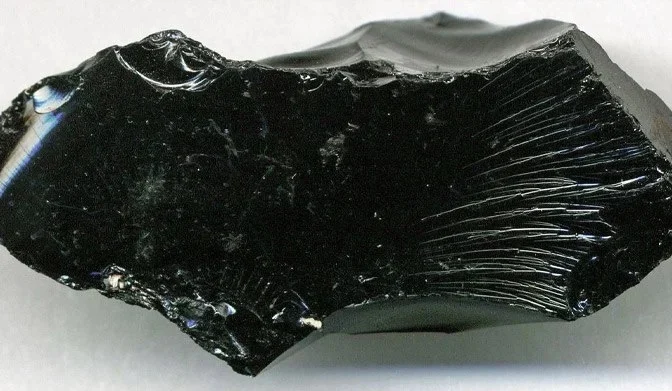
Purchase and supply of natural asphalt with Elika Gilsonite company
Looking for high-quality natural asphalt at competitive prices? Look no further than Elika Gilsonite! As the largest exporter of Gilsonite in Iran, Elika Gilsonite offers premium-grade natural asphalt sourced from the finest deposits.
Elika Gilsonite takes pride in delivering top-notch products that meet the highest standards of quality and performance. Our natural asphalt, also known as Gilsonite or uintaite, is a versatile and reliable material with a wide range of applications, including asphalt modification, foundry casting, drilling fluid additives, and more.
With our extensive experience and expertise in the industry, Elika Gilsonite ensures that our customers receive superior products that consistently exceed expectations. Whether you’re in need of natural asphalt for road construction, industrial applications, or other projects, we’ve got you covered.
Plus, with our competitive pricing and commitment to customer satisfaction, you can trust Elika Gilsonite to provide you with the best value for your money. Don’t compromise on quality – choose Elika Gilsonite for all your natural asphalt needs.
Contact us today to learn more about our products and how you can purchase natural asphalt from Elika Gilsonite at affordable prices. Experience the difference with the leading exporter of Gilsonite in Iran!
Source: native asphalt











